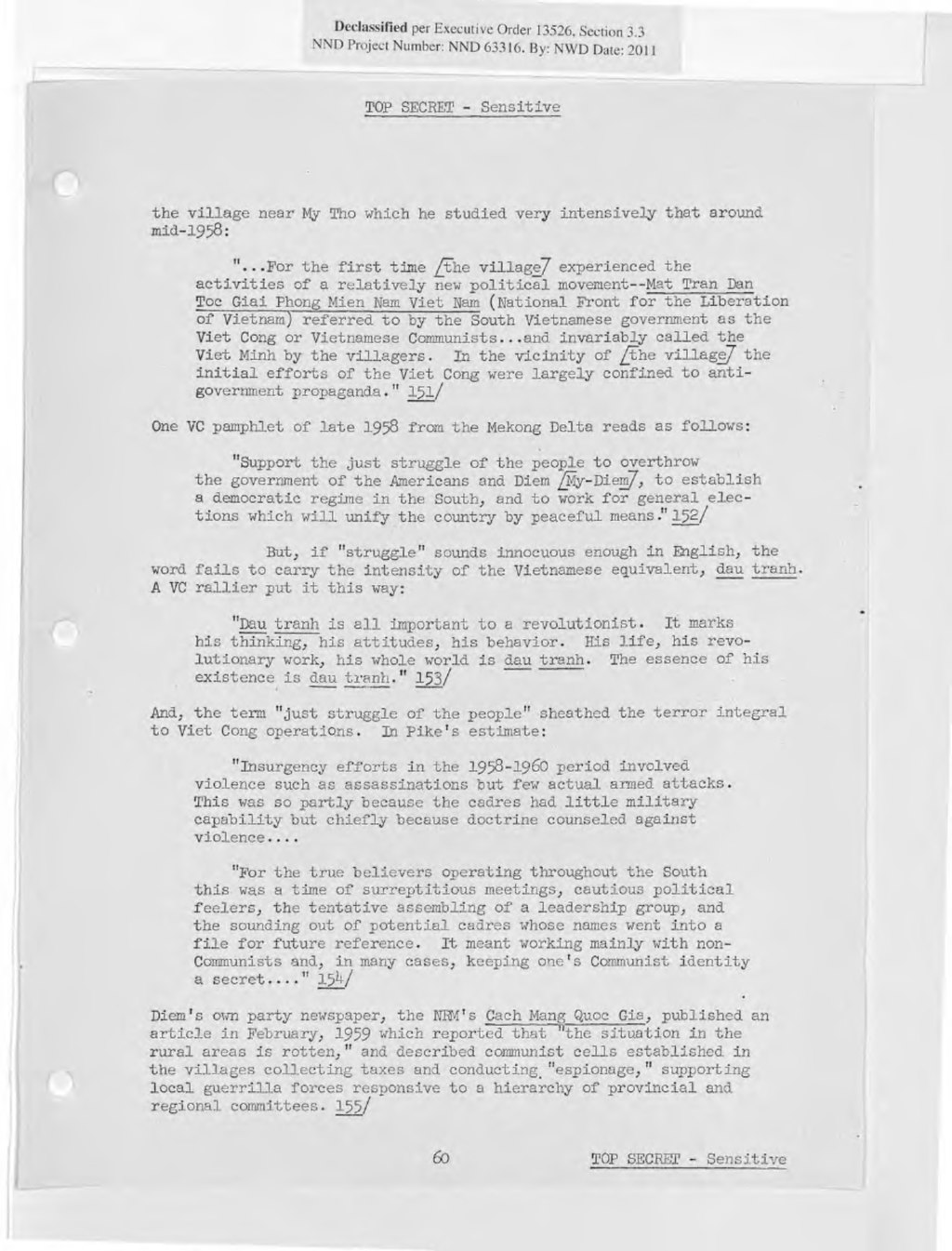Declassified per Executive Order 13526, Section 3.3
NND Project Number: NND 63316. By: NWD Date: 2011
TOP SECRET – Sensitive
the village near My Tho which he studied very intensively that around mid-1958:
…For the first time [the village] experienced the activities of a relatively new political movement--Mat Tran Dan Toc Giai Phong Mien Nam Viet Nam (National Front for the Liberation of Vietnam), referred to by the South Vietnamese government as the Viet Cong or Vietnamese Communists ... and invariably called the Viet Minh by the villagers. In the vicinity of [the village] the initial efforts of the Viet Cong were largely confined to anti-government propaganda."151
One VC pamphlet of late 1958 from the Mekong Delta reads as follows:
"Support the just struggle of the people to overthrow the government of the Americans and Diem [My-Diem], to establish a democratic regime in the South, and to work for general elections which will unify the country by peaceful means."152
But, if "struggle " sounds innocuous enough in English, the word fails to carry the intensity of the Vietnamese equivalent, dau tranh. A VC rallier put it this way:
"Dau tranh is all important to a revolutionist. It marks his thinking, his attitudes, his behavior. His life, his revolutionary work, his whole world is dau tranh. The essence of his existence is dau tranh."153
And, the term "just struggle of the people" sheathed the terror integral to Viet Cong operations. In Pike's estimate:
"Insurgency efforts in the 1958-1960 period involved violence such as assassinations but few actual armed attacks. This was so partly because the cadres had little military capability but chiefly because doctrine counseled against violence ....
"For the true believers operating throughout the South this was a time of surreptitious meetings, cautious political feelers, the tentative assembling of a leadership group, and the sounding out of potential cadres whose names went into a file for future reference. It meant working mainly with non-Communists and, in many cases, keeping one's Communist identity a secret ...."154
Diem's own party newspaper, the NRM's Cach Mang Quoc Gia, published an article in February, 1959 which reported that "the situation in the rural areas is rotten," and described communist cells established in the villages collecting taxes and conducting "espionage," supporting local guerrilla forces responsive to a hierarchy of provincial and regional committees.155
